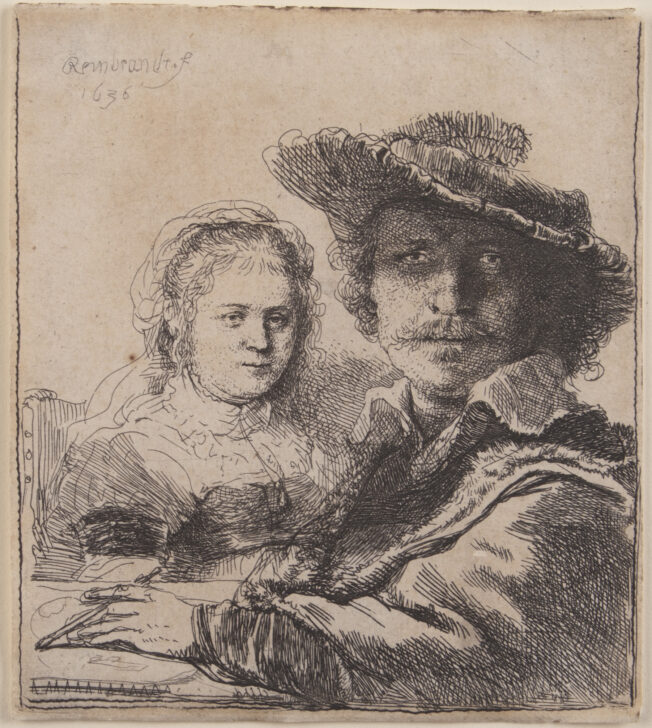Self Portrait with Saskia
Rembrandt van Rijn

Description
Rembrandt van Rijn
The Netherlands, 1606–1669
Christ and the Woman of Samaria Among Ruins
1634
Etching
Gift of Ruth W. and Clarence J. Boldt, Jr., 2008/2.408
Self-Portrait with Saskia
1636
Etching
Gift of Ruth W. and Clarence J. Boldt, Jr., 2008/2.406
Whistler greatly admired the work of Rembrandt and his achievements as a print-maker. Rembrandt was particularly known for creating dramatic contrasts of light and dark, referred to as chiaroscuro (from the Italian for chiaro—light, and scuro—dark); such tonal effects were extremely difficult to attain in the fundamentally linear medium of printmaking. In Christ and the Woman of Samaria Among Ruins, these oppositions of dark and light not only suggest the effects of natural light, but also heighten the drama of the scene.
In Self-Portrait with Saskia, the viewer confronts the artist himself, depicted as a young man with his bride, Saskia. Throughout his career, Rembrandt repeatedly painted, sketched, and etched images of his own face in addition to creating rich and penetrating portraits of others. In his self-portraits, the artist frequently assumed different guises and costumes, sensitively exploring his own personality and temperament at different ages. A recurring element was a broad brimmed hat; here it casts his eyes into shadow, heightening the psychological complexity of this self-portrait. It would have been clear to anyone familiar with Rembrandt’s work that in Whistler’s early self-portrait he is consciously “tipping his hat” to, and blatantly emulating, this revered old master.
Physical Description:
Trimmed to plate mark. Paper size: lh 12 1/10cm & rh 12 3/10cm x tw 10 3/5cm & bw 11cm.
Usage Rights:
If you are interested in using an image for a publication, please visit https://umma.umich.edu/request-image/ for more information and to fill out the online Image Rights and Reproductions Request Form.